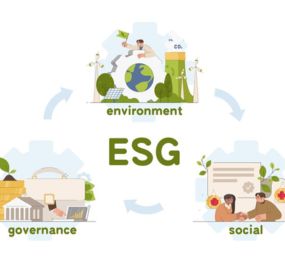ESG disclosure regulations are transforming corporate practices by mandating greater transparency and accountability in how companies address environmental, social, and governance (ESG) issues. These regulations aim to provide stakeholders with comprehensive information on a company's sustainability practices, which in turn drives more responsible business behavior and decision-making.
One of the primary impacts of ESG disclosure regulations is the enhancement of transparency. Companies are now required to disclose detailed information on their environmental impact, social policies, and governance structures. This increased transparency allows investors, customers, and other stakeholders to assess a company's commitment to sustainability and make more informed decisions. By providing standardized metrics and consistent reporting frameworks, these regulations facilitate easier comparison between companies and industries.
Moreover, ESG disclosure regulations are pushing companies to adopt more sustainable and responsible practices. As companies are held accountable for their ESG performance, there is a greater incentive to minimize environmental impact, improve labor conditions, and enhance governance practices. This can lead to innovations in energy efficiency, waste management, and ethical supply chain management, ultimately benefiting both the company and the broader society.
Corporate accountability is another significant outcome of ESG disclosure regulations. With mandatory reporting, companies must regularly assess and communicate their ESG risks and opportunities. This ongoing evaluation encourages businesses to integrate ESG considerations into their core strategies and operations, leading to more sustainable long-term growth. Furthermore, non-compliance with these regulations can result in legal and reputational risks, reinforcing the importance of adhering to ESG standards.
However, implementing ESG disclosure regulations also presents challenges. Companies may face increased administrative burdens and costs associated with data collection, reporting, and compliance. Smaller businesses, in particular, might struggle with the resources required to meet these new standards. Nevertheless, the overall benefits of increased transparency and accountability outweigh these challenges, promoting a more sustainable and responsible business environment.
In conclusion, ESG disclosure regulations are significantly impacting corporate practices by enhancing transparency, driving sustainability, and ensuring accountability. As companies adapt to these regulations, they are more likely to adopt responsible practices that contribute to long-term success and positive societal impact.
To register or learn more about the Forum please check here: https://www.leadventgrp.com/events/world-esg-and-climate-summit/details
For more information and group participation, contact us: [email protected]
















